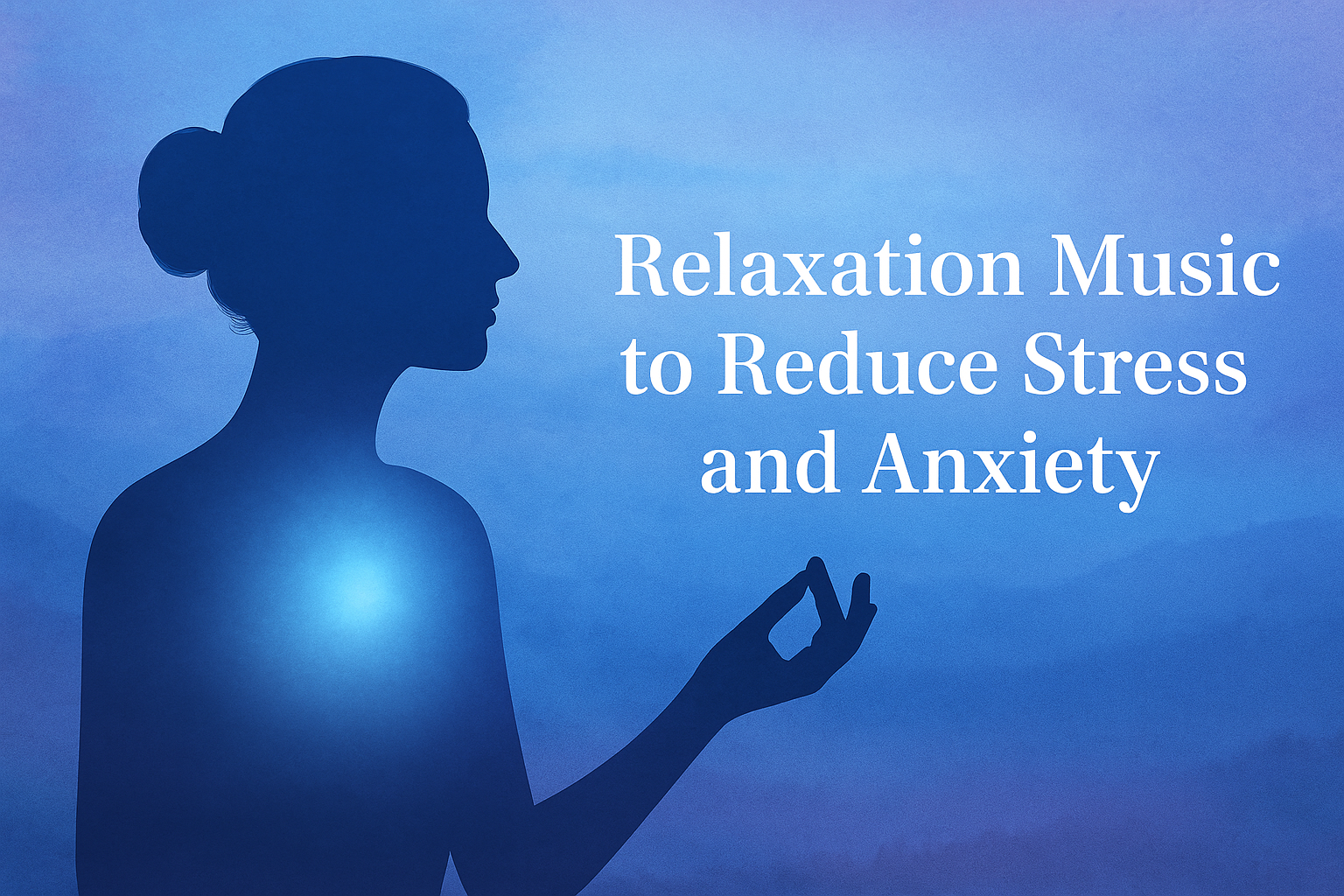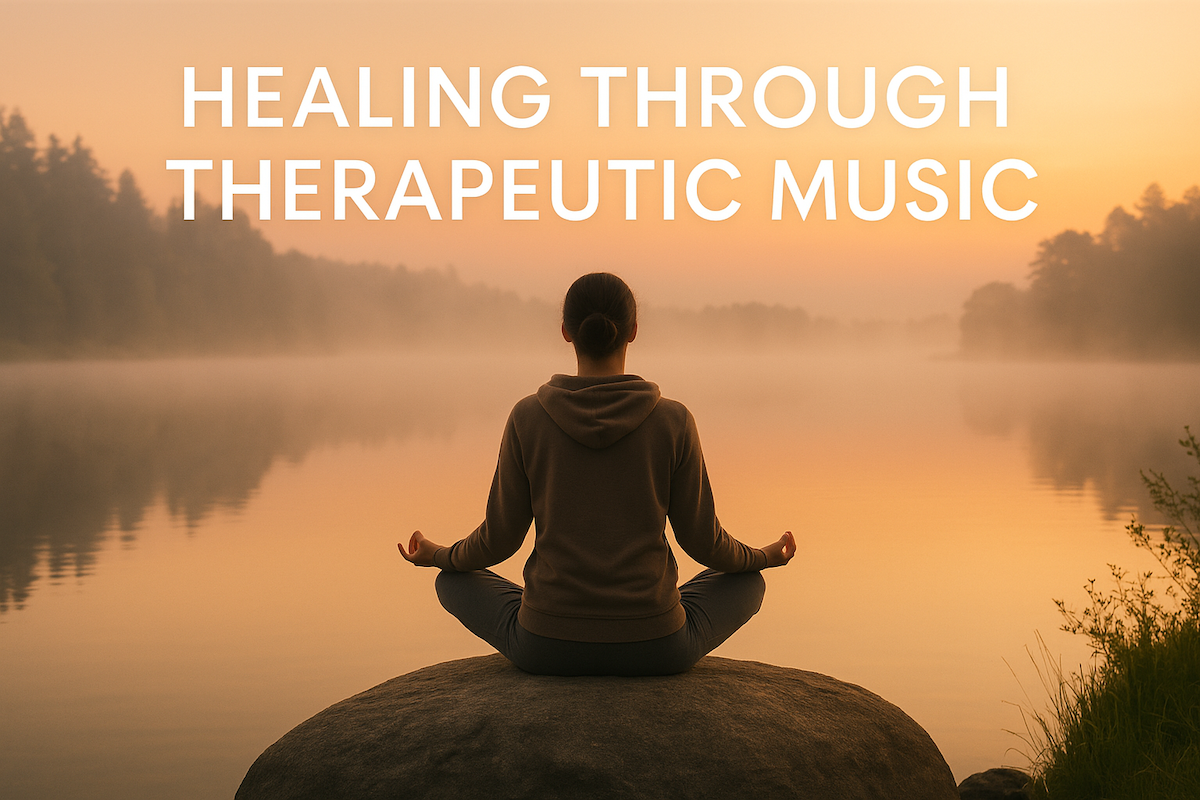Table of Contents
Addiction, whether to substances such as alcohol or drugs, or behaviors that may negatively impact mental health, is a complex condition that impacts not only the individual but also their family, friends, and community. Recovery from addiction is often a long, challenging journey that requires the integration of various therapies, treatments, and techniques to foster healing and growth. Alongside the well-established therapies such as cognitive-behavioral therapy (CBT), group therapy, and medication management, an increasingly recognized treatment approach is the incorporation of therapeutic relaxation and meditation music into the treatment plan.
Music has long been a part of human culture, serving as a vehicle for expression, communication, and connection. In the context of addiction and mental health treatment, therapeutic music—particularly relaxation and meditation music—can offer significant psychological and physical benefits. These benefits span from providing relief from stress and anxiety to promoting emotional regulation, improving sleep quality, reducing the intensity of cravings, and enhancing self-awareness.
The Impact of Addiction on the Mind and Body
Before delving into the specific benefits of therapeutic music, it’s important to understand the pervasive effects that addiction has on the mind and body.
Substance use disorders, which include addiction to drugs or alcohol, take a toll on both the physical and mental health of an individual. Physically, addiction can lead to a range of health problems, including liver disease, heart conditions, neurological damage, and weakened immune systems. Mental health is also deeply affected, as addiction is often closely linked to disorders such as depression, anxiety, PTSD, and even psychosis. The brain’s reward system, which becomes hijacked by drugs or alcohol, leads to altered neural pathways and impaired decision-making.
One of the key challenges in addiction recovery is managing the psychological and physiological withdrawal symptoms that often accompany detoxification. These symptoms can include anxiety, irritability, insomnia, cravings, and depression. Therapeutic relaxation and meditation music can be an effective complementary tool for managing these symptoms.
The Power of Music in the Healing Process
Music therapy, which involves listening to, creating, or moving to music in a structured way, has been recognized as a powerful tool for promoting mental and physical health. The therapeutic use of music can positively influence both the mind and the body by:
- Reducing Stress and Anxiety: Therapeutic music has been shown to have a calming effect on the nervous system, helping to reduce the levels of stress and anxiety that are often heightened during addiction recovery. For individuals who experience anxiety or panic attacks during withdrawal, soothing music can promote relaxation and bring down the heart rate, making it easier to cope with these distressing symptoms.
- Enhancing Emotional Regulation: Addiction is often accompanied by difficulty in managing emotions. Music, especially therapeutic relaxation or meditation music, can serve as a grounding tool, helping individuals to navigate intense emotions in a healthier way. For those in recovery, emotional regulation is key to preventing relapse and fostering long-term recovery. Meditation music, in particular, encourages mindfulness, which has been shown to improve emotional stability.
- Creating a Sense of Safety and Comfort: The emotional landscape of recovery can be challenging. Individuals often feel vulnerable, isolated, and disconnected from others. Music can create an environment of safety and comfort by acting as a companion during moments of loneliness or stress. It provides an outlet for expression and, in some cases, can become a reminder that healing is possible. In this way, music can encourage hope and create a sense of psychological support.
- Supporting Mental Clarity and Focus: Many individuals in recovery experience difficulty focusing and processing information due to the lingering effects of addiction. Music can improve cognitive function by stimulating areas of the brain associated with memory, focus, and concentration. This is particularly useful in the early stages of recovery when individuals are working on developing new coping strategies and life skills.
- Improving Sleep Quality: One of the most common challenges in addiction recovery is poor sleep. Substance use often disrupts normal sleep patterns, leading to insomnia, nightmares, or fragmented sleep. Meditation music, particularly tracks designed to promote sleep, can help regulate circadian rhythms, calm the mind, and encourage restorative sleep. Better sleep supports both emotional well-being and physical health, which are crucial for the healing process.
The Psychological Benefits of Therapeutic Relaxation and Meditation Music
Therapeutic music, especially when designed for relaxation and meditation, offers several psychological benefits for individuals in recovery from addiction.
- Reducing Cravings and Relapse Risk
One of the most significant hurdles in addiction recovery is resisting cravings and the temptation to relapse. Studies have shown that therapeutic music can reduce the intensity of cravings by triggering the brain’s relaxation response. When individuals listen to soothing music, it can disrupt the cycle of craving and stress by bringing them into a calmer state. Music can also be used as a tool for mindfulness, helping individuals stay present and less focused on thoughts of using substances.
- Promoting Mindfulness and Self-Awareness
Mindfulness, the practice of being present in the moment without judgment, is a critical skill in addiction recovery. Many individuals turn to substances to escape from uncomfortable feelings or experiences. Through mindfulness practices, which can be facilitated through the use of meditation music, individuals can learn to face difficult emotions with acceptance rather than avoidance. Meditation music often includes cues or frequencies that guide listeners into a deeper state of awareness, which helps them develop greater insight into their thoughts, feelings, and behaviors.
Self-awareness is a key component of personal growth, and by integrating therapeutic music into a recovery plan, individuals can cultivate a deeper understanding of their triggers, patterns, and emotional needs. This self-awareness is crucial for overcoming addiction and creating a more balanced and fulfilling life.
- Emotional Healing and Trauma Release
Many individuals struggling with addiction also have a history of trauma or unresolved emotional pain. Trauma can be a driving force behind substance abuse, as individuals may use substances to numb emotional wounds or cope with painful memories. Music has the ability to bypass the intellectual mind and tap directly into the emotional and subconscious layers of the psyche. Meditation music, in particular, can facilitate emotional release, helping individuals process and heal from past trauma. By integrating sound frequencies and harmonics, these types of music can promote deep emotional healing and encourage individuals to face and release suppressed emotions in a safe environment.
- Strengthening Motivation and Positivity
Addiction recovery requires an immense amount of motivation and resilience. Therapeutic music can enhance positive thinking by uplifting the spirit and encouraging a more optimistic outlook. Many meditation music recordings are designed to promote positive affirmations, love, and compassion. Listening to these types of music regularly can help shift an individual’s mindset, providing them with the emotional support they need to stay motivated throughout their recovery journey.
The Physical Benefits of Therapeutic Relaxation and Meditation Music
While the psychological benefits of therapeutic music are well-documented, it’s also important to note the physical benefits it provides to individuals in recovery. These benefits include:
- Lowering Blood Pressure and Heart Rate
Listening to relaxing music has been shown to lower blood pressure and heart rate, which is particularly beneficial for individuals recovering from addiction. Drug and alcohol use can strain the cardiovascular system, so music that promotes relaxation can help reverse some of these effects. By activating the parasympathetic nervous system (the body’s relaxation response), therapeutic music helps individuals reduce physical tension and ease their bodies back into a state of balance.
- Boosting Immune System Function
Addiction weakens the immune system, making individuals more susceptible to illness and disease. The soothing effects of therapeutic music can help reduce stress, which in turn boosts immune system function. Chronic stress is known to suppress immune function, so music that promotes relaxation may help to restore a more balanced immune system, supporting overall health and recovery.
- Reducing Muscle Tension and Pain
Physical tension is a common issue for individuals in recovery, especially as the body undergoes detoxification and healing. Music with a slow, rhythmic pace can help relax tense muscles and relieve physical pain. This can be especially helpful for those experiencing withdrawal symptoms or chronic pain associated with addiction. The physical relaxation induced by music can also make other treatments—such as physical therapy or massage—more effective.
How to Incorporate Therapeutic Relaxation and Meditation Music into Treatment Plans
Therapeutic relaxation and meditation music can be integrated into an individual’s treatment plan in several ways:
- Daily Listening: Incorporating a daily music practice can help individuals maintain a sense of calm and stability throughout their recovery. Many treatment centers and therapists suggest that clients listen to specific tracks at designated times of day, such as first thing in the morning or before bed, to promote relaxation.
- Guided Meditation Sessions: Combining music with guided meditation sessions can amplify the effects of both. Therapists may use meditation music during group therapy sessions or individual therapy to promote relaxation and mindfulness.
- Music as a Coping Mechanism: Music can be used as a coping tool when cravings or emotional distress arise. Individuals can turn to their favorite therapeutic music to help them navigate challenging moments and stay grounded in their recovery process.
- Music Therapy: For those interested in deeper engagement, music therapy sessions with a trained therapist can be highly beneficial. Music therapists work with individuals to explore their relationship with music and its potential healing effects, using tailored approaches to meet each person’s unique needs.
Conclusion
Incorporating therapeutic relaxation and meditation music into addiction recovery and mental health treatment plans offers significant benefits for individuals struggling with addiction. From reducing cravings and promoting emotional regulation to improving sleep quality and lowering stress, the effects of therapeutic music are both profound and wide-reaching. By enhancing both the psychological and physical aspects of recovery, music provides a powerful, accessible tool to support lasting healing. Whether used to manage withdrawal symptoms, foster emotional healing, or improve physical health, therapeutic music can play a key role in helping individuals overcome addiction and build a fulfilling, balanced life.
Album of Inner Stillness: Relaxation Music for Stress Relief

Get Free from Addiction!
Discover a groundbreaking perspective on addiction recovery. Click below to buy Prelude to a Paradigm Shift for Addiction and explore innovative solutions to transform the way we understand and treat substance use disorders.
About Enhanced Healing
Enhanced Healing Counseling specializes in addiction recovery, mental health, and self-esteem support. Offering online and in-person services, we empower individuals to transform their lives with personalized care and proven therapeutic methods.




